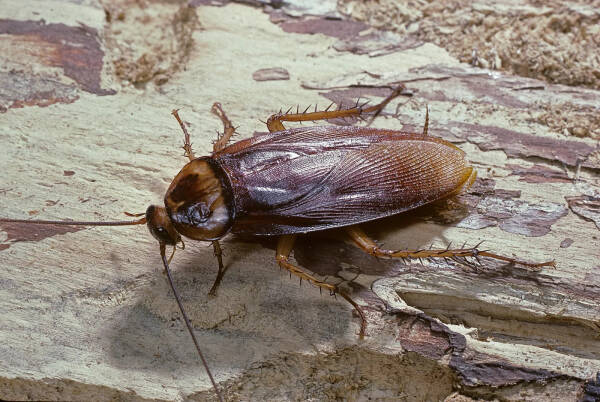Like other insects,cockroaches do not have lungs. Instead,its respiratory system consists largely of a network of tubes called tracheas, which openon the surface of the chest and abdomen through pairs of valve-like structures called spiracles. Muscles on or near the stomata keep them closed most of the time but allow them to open as needed to draw in oxygen-rich air from around the insect and release carbon dioxide-rich air as waste in the body. The trachea is connected to the cuticle on the body surface and conducts air between the stomata and smaller tubes called tracheas. Through the thin walls of the trachea, oxygen and carbon dioxide are exchanged with tissues throughout the body through diffusion.

In less active insects, oxygen and carbon dioxide enter and exit the body primarily by passive diffusion from external surfaces. However, cockroaches are very active, and they (as well as other active insects such as dragonflies, ants, and bees) have mechanically ventilated respiratory systems. The rhythmic pumping movement of the abdomen provides the necessary force to expel air from some stomata and draw it in at others. This movement causes pressure changes in and around the trachea, causing it to alternately expand and collapse at different points, helping to push air through the network. The respiratory system can also be triggered by heat stress or conditions of low oxygen and high carbon dioxide. This stimulation activates nerve centers, resulting in increased breathing.
animal tags: roach
We created this article in conjunction with AI technology, then made sure it was fact-checked and edited by a Animals Top editor.